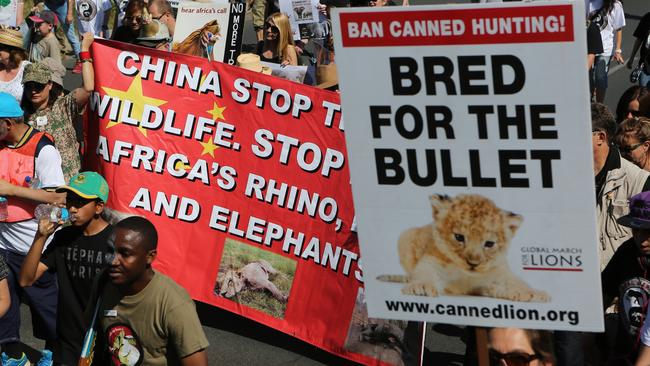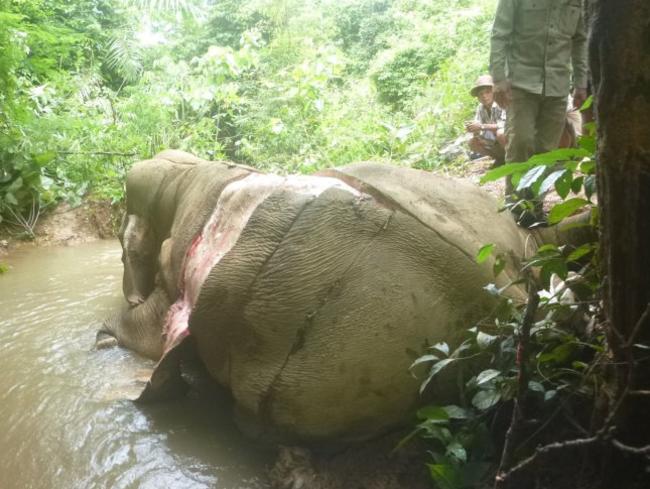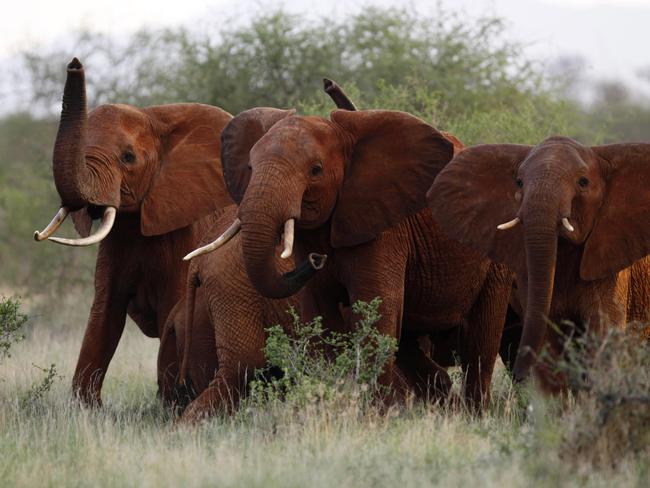Asian elephants found skinned in grotesque new trade
SHOCKING images show the grotesque new threat faced by endangered Asian elephants in the jungles of Myanmar. WARNING: Distressing.

WARNING: Distressing.
ENDANGERED elephants are up against a new and horrifying threat: skinning.
The butchered bodies of illegally killed Asian elephants, stripped of their hides, have been found deep in the jungles of Myanmar.
Great swatches of skin are being hacked away to feed a growing demand in China, used in medical potions and jewellery manufacturing.
Grisly photos exposing the growing skin trade were taken during an undercover operation funded by British-based charity, Elephant Family, Mail Online reports.

According to the publication, figures from Myanmar’s government suggest elephant poaching has increased by 25 per cent between 2013 and 2015.
More than 420kg of elephant hide has recently been seized in southwest China, where it can go for $76/kg, with stockpiles reportedly found in Myanmar.
Sources claim at least 50 elephants have been skinned in Myanmar this year.
“I am very concerned about this trade. It is very new,” Dr Khyne U Mar, an Asian elephant expert, said. “We recently started finding increasing amounts of cut-up, dried elephant skin.”
ELEPHANTS LEARN TO AVOID DANGER: EXPERTS
Across the ocean, some African elephant herds are adapting to the danger of poaching by moving out of risky areas.
The plight of elephants is a key issue at the meeting of the Convention on International Trade in Endangered Species of Wild Fauna and Flora, or CITES, which began over the weekend and ends on October 5.
Radio tracking data of elephants since 1998 in northern Kenya show how “exquisitely sensitive to risk they are,” said Frank Pope, operations manager of Save the Elephants.
Africa had 1.3 million elephants in the 1970s but has only 500,000 today, according to wildlife experts.
In northern Kenya’s Shaba reserve, “you can almost pick out the borders of the reserve by where the elephants go,” Pope said. “There is no fence, there is no cutting, there is nothing to visually mark it, but the elephants know, ‘I am safe here, I’m not safe here’.”
Pope said “there is every reason to believe that elephants are voting with their feet and moving from unsafe areas to safe areas.”
Save the Elephants also works in Virunga National Park in eastern Congo, which is home to multiple armed groups competing for control of the region’s vast mineral resources. Some have been accused of killing elephants for their tusks. Elephants there stick closely to ranger’s posts, Pope said.

The elephant populations worst hit by poaching are in Tanzania, Gabon, Cameroon, Central African Republic, Mozambique, Republic of Congo and Congo.
Kenya has said it will push for the total ban on the trade in ivory at the CITES meeting. It says the temporary lifting of the ban in 2007 to allow some countries to offload their stockpiles fuelled the resurgence of killing elephants to sell their tusks, primarily to China and southeast Asian countries.



